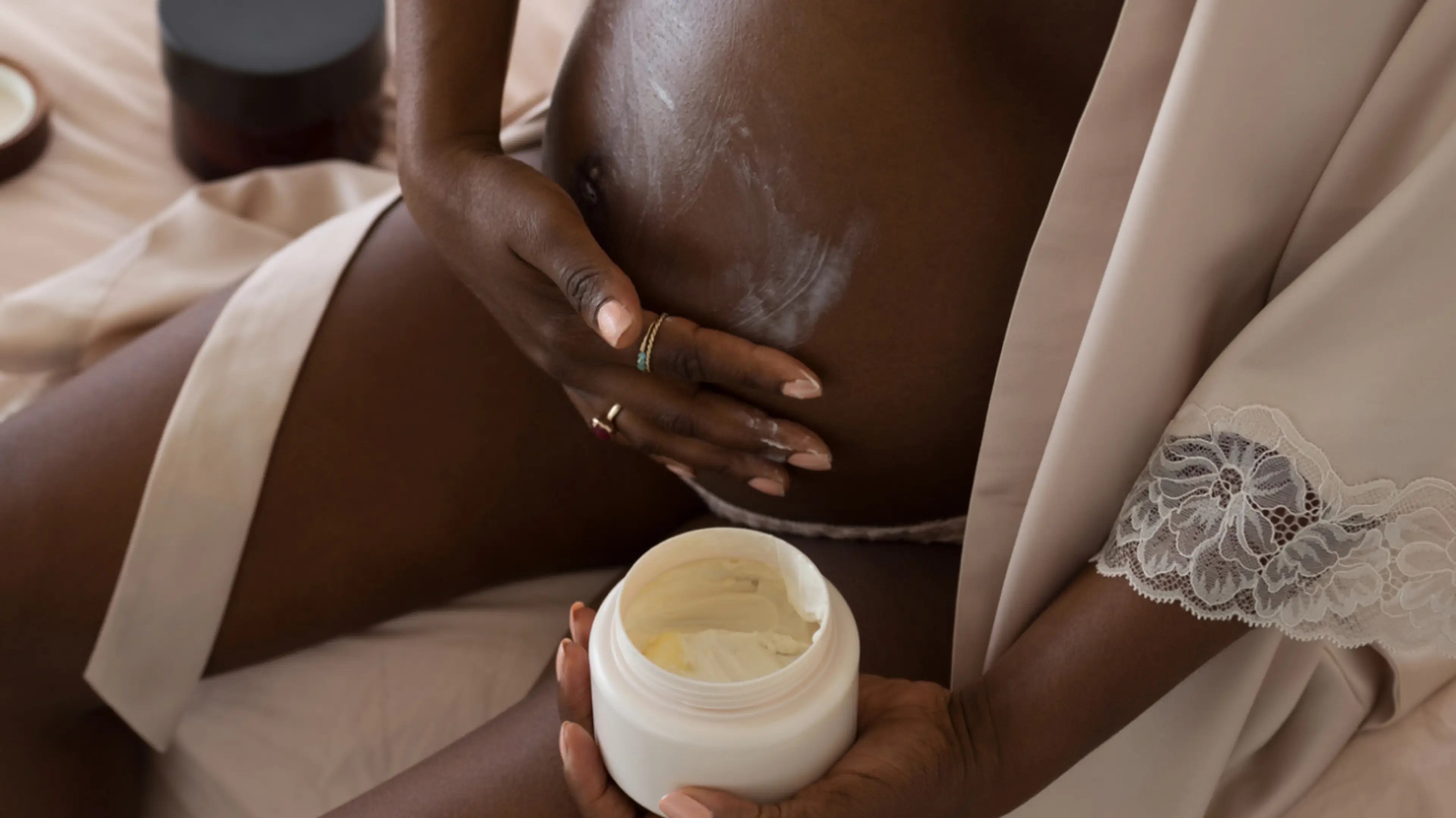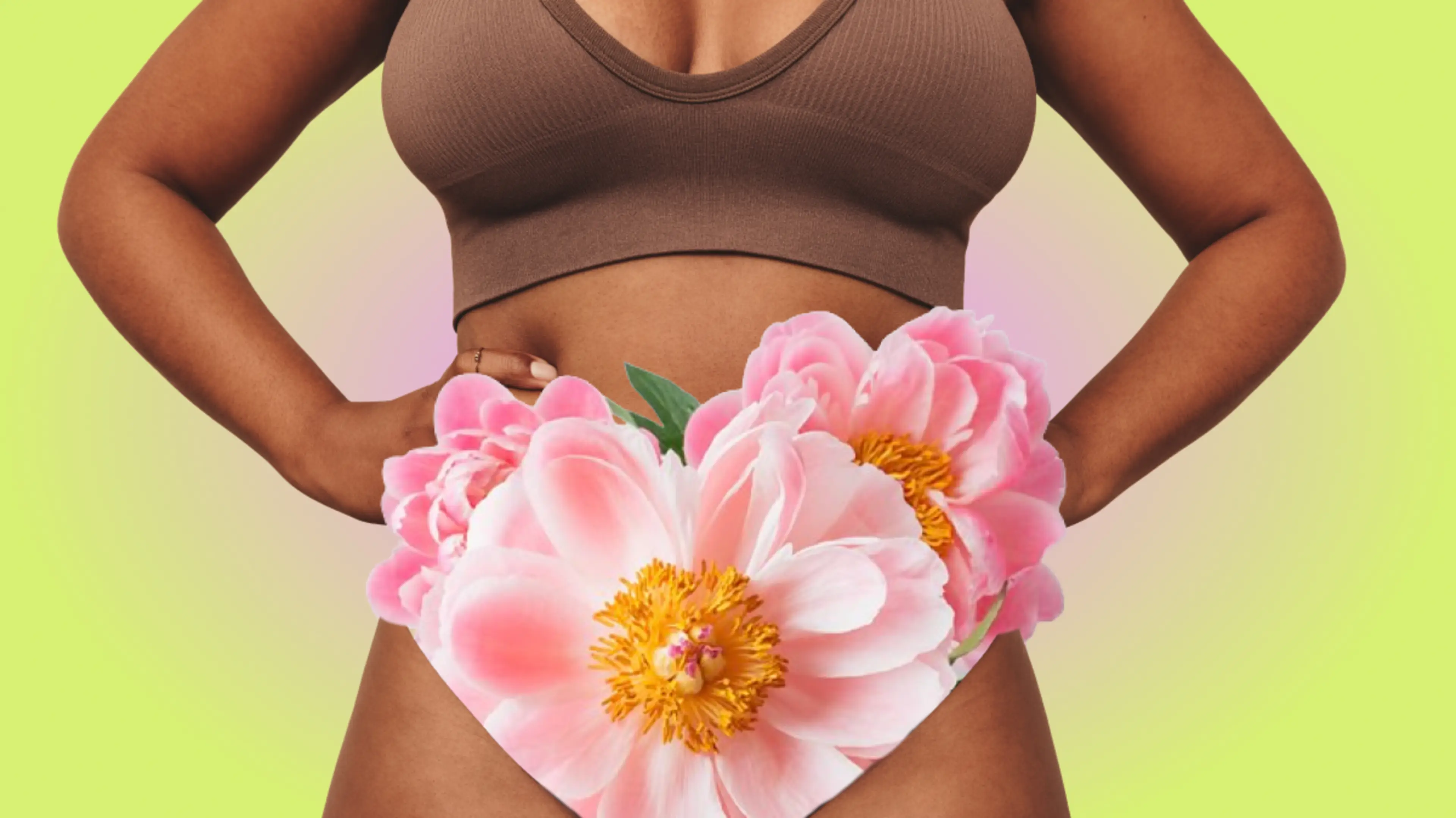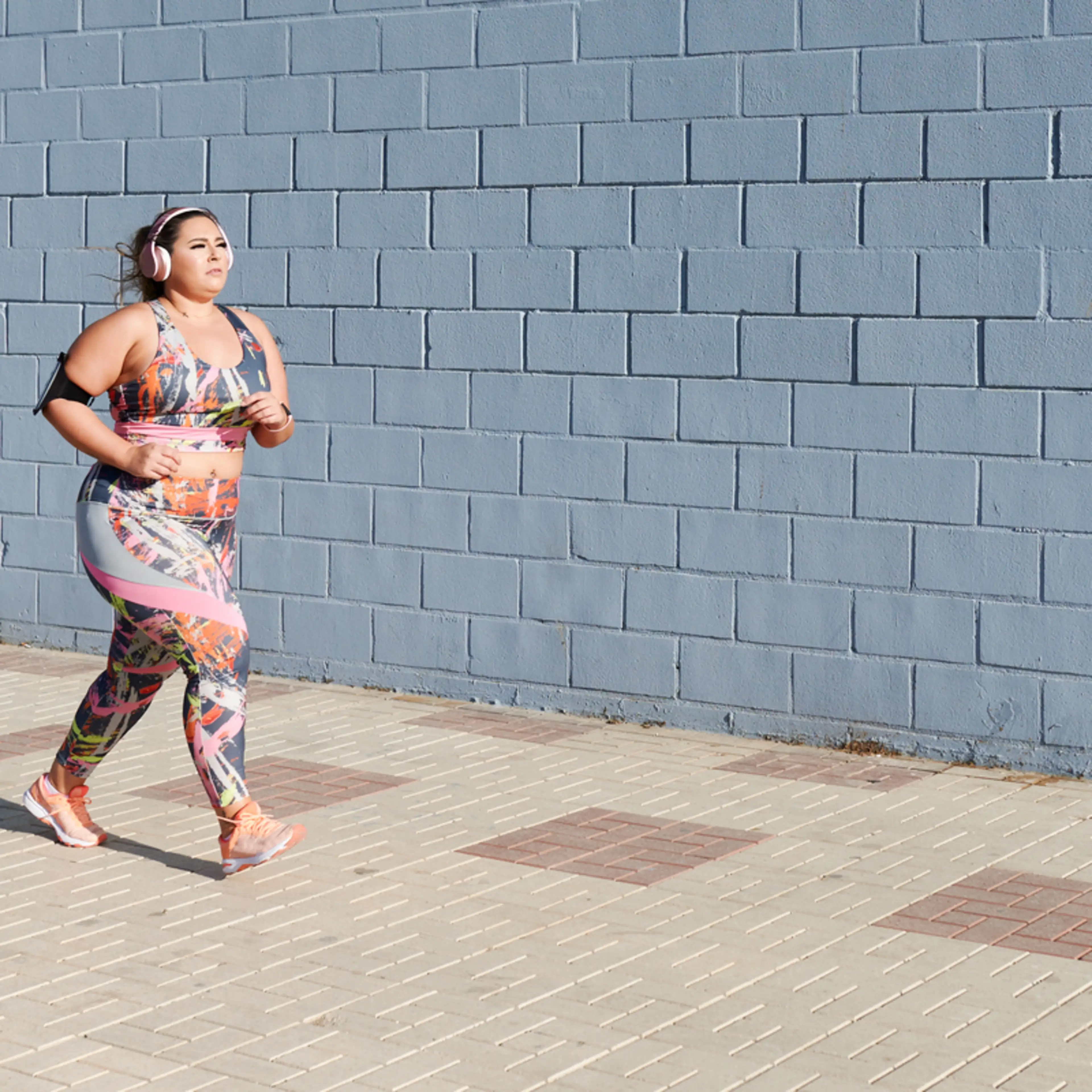You’ve probably heard about the “pregnancy glow,” where the skin on your face looks naturally bright and healthy thanks to the hormones your body is churning out. But what’s talked about a lot less are the other skin-related side effects of pregnancy: skin discoloration, sensitivity and, unfortunately, acne.
With all the other stuff going on with your body, who has time to deal with all the strange changes in your skin? And what if your regular skin care routine isn’t working for your new pregnancy skin, or you’re worried your pre-pregnancy products might not be totally safe for you and baby? Luckily, there are loads of products out there that are not only safe to use while you’re pregnant, they’re also budget-friendly and don’t require you to add a ton of time to your morning and evening routines.
Here’s how to care for your (seemingly ever-changing) skin while pregnant.
How to Care for Your Skin During Pregnancy
Skin Changes During Pregnancy
Along with lots of other changes happening in your body as it’s subjected to pregnancy hormones, you’ll probably notice your skin going through some changes too, including:
Melasma, or skin discoloration, “can be stubborn and persistent even after the pregnancy is over,” according to dermatologist Dr. Lisa Zhang. To help combat it, you’ll need to up your sun protection game—wear a hat that shades your face whenever possible, and be sure to apply sunscreen to your face every two hours.
Stretch marks are very common, and there’s not much you can do to keep them at bay “besides trying to gain and lose weight slowly [and] moisturizing on a daily basis,” Zhang says. For moisturizer, she recommends Bio Oil or Neutrogena Body Oil since they glide over skin easier than lotion, but keep in mind that there is no scientific evidence that those products help prevent stretch marks. There are also options like microneedling and lasers once you’re postpartum. That said, stretch marks are completely normal and are a natural result of your skin stretching to accommodate your growing baby (and anyone can get stretch marks, not just pregnant people—they’re a normal part of being human).
Moles may get darker and/or larger during pregnancy. That isn’t cause for alarm, but “if a mole is multiple colors, larger than six millimeters or there is family history of skin cancer, get checked by a dermatologist as soon as possible,” Zhang says. “The ABCDEs of melanoma still apply during pregnancy.” Here’s what to look out for (conveniently in alphabetical order to help you remember):
Asymmetry
Border is irregular
Color (multiple colors)
Diameter larger than six millimeters
Evolving or changing
Skin tags are small, raised growths of skin that sometimes hang by a thin stem. They can be the same color as your skin or slightly darker like a mole, but they’re noncancerous and typically only bothersome if they rub against clothing.
Excess sebum, an oily substance from your sebaceous glands, can lead to increased acne.
Pregnancy Skin Care Concerns
With new changes come new concerns, but with expert information and a little bit of caution, you can maintain a basic skin care routine throughout your pregnancy. There are two main skin care concerns that are associated with pregnancy:
Products may be absorbed into your bloodstream through your skin and will affect the growth or development of your baby. While you can’t prevent your skin from absorbing your skin care products (that’s the whole point of them, anyway), you can make sure that the products you’re using are safe for both you and baby in the event they make it all the way into your bloodstream (more on the specifics of what’s safe in a bit).
Your skin may be more sensitive than usual, and you may experience allergic reactions to skin care products, including both new products being introduced to your routine and products you’ve been using for years. If you notice increased sensitivity in your skin during pregnancy, stick to gentle, fragrance-free skin care products, and don’t try a bunch of new products at once. Instead, introduce one new product at a time and give your skin time to adjust to each one before trying another.
Skin Care Ingredients to Avoid During Pregnancy
It’s probably not surprising that some skin care products aren’t safe to use while you’re pregnant. Before we get into what is safe, the most important thing to know is what to avoid so you can minimize adverse reactions.
These skin care products are considered unsafe for use while pregnant because they can either cause harm to a fetus when they enter the bloodstream or cause irritation in sensitive skin:
Retinol (products containing retinoids, typically used for acne and anti-aging)
Hydroquinone (a skin-lightening agent)
Salicylic acid in high doses, in a chemical peel or taken orally
Cosmetic treatments such as Botox, fillers and lasers
Exfoliating treatments such as microdermabrasion, peels or exfoliation masks
Products containing fragrances and essential oils such as bath bombs and scented lotions
Additionally, “just because a product is available over the counter without a prescription doesn’t necessarily mean it’s safe to use in pregnancy,” says Dr. Zhang. No matter where you’re shopping for skin care products, always read the ingredients list to check for unsafe ingredients. And if you’re unsure about a particular product or ingredient, check with your OB and your dermatologist (if you have one).
Skin Care Products That Are Safe During Pregnancy
So what can you use? Don’t let that list of products to avoid discourage you from creating a solid pregnancy-safe skin care routine—there are still plenty of skin care products out there that will help you fight breakouts and dryness and keep your skin feeling clean and healthy:
Gentle, fragrance-free cleansers and moisturizers
Hyaluronic acid (a moisturizer with pregnancy-safe anti-aging properties)
Benzoyl Peroxide (safe in limited amounts, but it is recommended to check with your dermatologist first before using)
Vitamin C serum (used for its brightening, anti-aging and antioxidant properties; apply in the morning before sunscreen)
Salicylic acid in low doses, usually found in over-the-counter face washes (not safe in high doses, in masks or when taken orally)
Looking for specific skin care product recommendations? Check out our guide on dermatologist-recommended, pregnancy-safe skin care products.
Using Sunscreen While Pregnant
Sunscreen is always super important whether you’re pregnant or not, but because your skin might be more sensitive to sun damage during pregnancy, you’ll want to be more mindful about how you use sunscreen.
You don’t necessarily need to use more sunscreen, Zhang says, “but you should try to use it diligently because of the increased risk of developing melasma. Pregnant people should apply sunscreen daily in the morning with their normal moisturizer, and then again every two hours if you’re going to be outside for long periods of time.” That might mean setting an alarm on your phone that goes off every two hours, especially if you’re planning things like long days at the beach or all-day hikes.
But there are so many sunscreens out there. Which ones are best for pregnant people? Zhang recommends physical blockers (also called mineral sunscreens) instead of chemical sunscreens because the zinc oxide or titanium dioxide that typically appear in mineral sunscreens are better shields against the sun, are less likely to irritate sensitive skin and aren’t absorbed into the bloodstream like chemical sunscreens are (oxybenzone, specifically, can be harmful to fetuses1 , so avoid it while pregnant). Additionally, she recommends sunscreens with an SPF of at least 30 and broad spectrum UVA and UVB protection.
Skin Care While Breastfeeding
Congratulations, your pregnancy is complete and you’re ready to move on to caring for your newborn! But if you’re planning on breastfeeding, does that mean you still need to be cautious about your skin care routine and the products you use?
The short answer: yes. “In general, while breastfeeding, most topical skin care products are safe as long as they are not placed near the breast/nipple,” says Zhang. However, there’s still a sizable lack of research on the safety of using certain skin care products while breastfeeding, “so it is still best to be cautious and avoid use of unnecessary products.”
Products like Botox, retinoids and hydroquinone (skin lightener) haven’t been studied for safety in breastfeeding, so it’s recommended they be avoided entirely while you’re nursing. But if you’re ever unsure about a skin care product and whether it’s safe to use while breastfeeding, always contact your OB or dermatologist.










